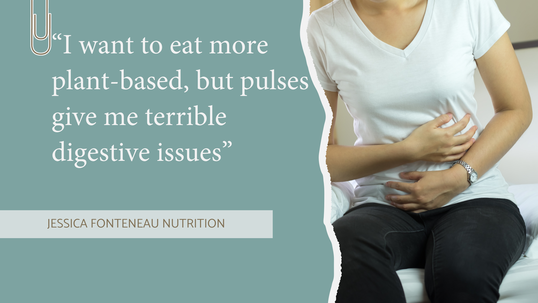ARTICLE Categories
All
|
|
Does this sound familiar?
One of the solutions proposed to help support the planet is to introduce more plant-based meals to our diet, and with vegan and vegetarian options becoming more easily available many of us are embracing this new way of eating with gusto. The trouble is, changing your diet radically and in a short period of time can result in a host of digestive issues, including bloating, indigestion, flatulence, and pain. It is important to note here that any persistent digestive issues should be checked by your GP, but if you can link the digestive symptoms to your new diet then the answer may simply be that your gut and the good bacteria (microbiome) it houses isn’t primed to digest those foods. We all have a variety of different bacteria in our gut and different bacteria like eating different things. If you’ve been traditionally a ‘meat and two veg’ type of eater, then your microbiome population will be geared towards those foods. If you have traditionally rarely eaten legumes and your fibre intake was low, the bacteria population that likes those things may be small and struggle with the sudden influx. There simply isn’t enough of those bacteria to process the new diet. The secret is to gradually increase your plant-based foods rather than suddenly go all in. As you increase your intake of fibre and legumes such as chickpeas, lentils, beans and peas, the population of bacteria that loves those foods will grow and so you will be able to tolerate more. Unfortunately, one of the main signs that this population is expanding is flatulence, but if you go gradually, it should be a temporary and should subside as as your gut gets accustomed to its new diet.
0 Comments
Leave a Reply. |
AuthorI’m Jessica Fonteneau, I’m the eczema specialist and I help people Escape from the Eczema trap. Archives
April 2024
Catégories
All
|


 RSS Feed
RSS Feed